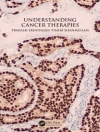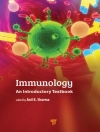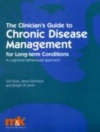Relief for your patients with musculoskeletal pain…
This unique guide takes an in-depth look at trigger point therapy. Divided into two sections – Functional Muscle Chains and Trigger Points and Their Treatment – this book combines detailed theory with tried and practical techniques.
The text covers the basics of functional muscle chains and the origin of myofascial pain arising from the musculoskeletal system, for example, due to poor posture. The reader will learn how various stretching exercises augment the myofascial therapy methods.
Anatomic drawings and liberal use of photographs in this book will help the reader to localize the trigger points and the associated pain areas.
Praise for the first edition:
‘The information is brief but to the point; there is little wasted space so that the book is packed with information that can immediately be put into action.’ Doody’s Review
Key Features:
- Various models of muscle chains introduced and described
- Detailed explanations of trigger points and their treatment
- New chapters about posture and influence of gravity, as well 46 new and redrawn illustrations, now totaling approximately 300, included in this new edition
- ‘Ticklish’ and erogenous zones mapped out to help prevent unintended side effects of treatment
Trigger Points and Muscle Chains, second edition, is an essential tool for osteopaths, physical therapists, and all practitioners involved in pain therapy.
This book includes complimentary access to a digital copy on https://medone.thieme.com.
สารบัญ
A Muscle Chains
1 Introduction
2 Models for Myofascial Chains
3 Physiology
4 The Craniosacral Model
5 The Biomechanical Model of John Martin Littlejohn – Mechanics of the Spine
6 Postural Muscles, Phasic Muscles, and Crossed Syndrome: Vladimir Janda’s Contributions to Myofascial Treatment Methods
7 Zink Patterns
8 Myofascial Chains: A Model
9 Posture
10 Diagnostics
11 Therapy
B Trigger Points: Diagnosis and Treatment
12 Definition
13 Classification of Trigger Points
14 Pathophysiology of Trigger Points
15 Diagnosing Trigger Points
16 Trigger Point Therapy
17 Trigger Point Perpetuating Factors
18 Facilitated Segments
19 Trigger Points
20 Bibliography
21 Illustration Credits
22 List of Abbreviations












